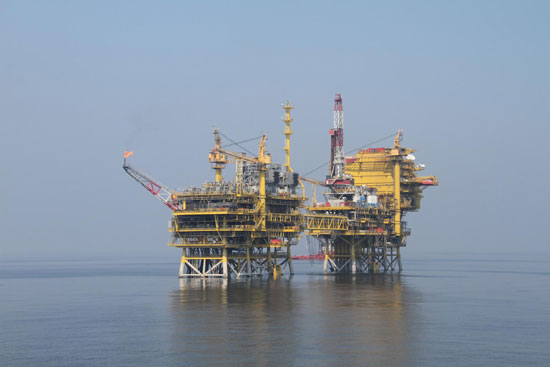|

|
|
A file photo taken on August 22 shows oil is seen floating on the sea near the Penglai 19-3 oilfield in Bohai Bay. [Photo/Xinhua]
|
US Energy Company ConocoPhillips plans to establish a fund in order to cover its responsibilities for an oil spill incident in Northeast China's Bohai bay lasting for more than two months since June.
It announced the plan on its website Tuesday, and apologized for all the bad problems it had caused.
"ConocoPhillips deeply regrets these incidents and apologizes for the impact that the incidents have had on the Chinese people and the environment," said James J. Mulva, Chairman and Chief Executive Officer, ConocoPhillips.
Conoco does not specify in the announcement how the fund will be operated, adding it will seek to work with relevant Chinese authorities and its co-venturer.
China's State Oceanic Administration (SOA) ordered a full halt to operations at the Penglai 19-3 oilfield in Bohai Bay on Sep 2, after finding Conoco had lied in its submitted reports on Aug 31 claiming that it had stopped the leak at the field that lasted for more than two months.
China National Offshore Oil Corp (CNOOC), China's largest offshore energy explorer who owns 51 percent of the field (while the rest is held by Conoco), says it respected the SOA's decision on Sunday, the same day that Conoco reported that it had fully stopped drilling and production at all 231 wells in the oilfield.
CNOOC says the full suspension of operation at the oilfield will cut the company's oil production by 62,000 barrels a day. The output drop also led CNOOC's biggest decline in a month in Hong Kong trading, with its stock falling 8.9 percent to HK$13.84 ($1.78) on Monday.
The suspension won't be lifted until SOA has approved a new marine environmental impact report by CNOOC.
The ongoing incident has polluted at least 5,500 square kilometers of seawater in Bohai Bay and spills reached Liaoning and Hebei provinces surrounding the bay, according to the monitoring result from the North China Sea Branch under the SOA.
Conoco is likely to face a fine of up to 200,000 yuan ($31,000) for the leak according to the law, but much more is expected as compensation for the ecological and economic damage it has caused.




